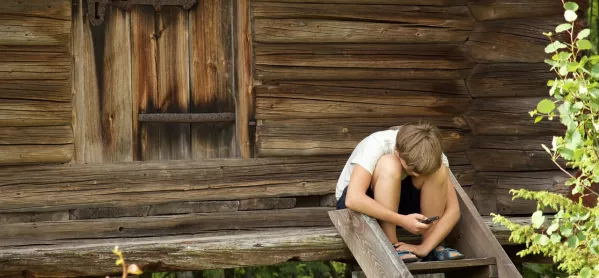
- Home
- We can’t blame social media for everything...
We can’t blame social media for everything...

Understandably, many parents and adults are concerned with children and young people’s use of social media. Whether it’s Instagram, Snapchat or some other new platform, adults are finding it hard to keep up with what their children are consuming online and its possible negative - and positive - effects.
Withdrawn from the “real” world, social media offers an idealised world, one that’s Photoshopped and staged in the pursuit of perfection. As the number of children with mental illness and anxiety increases, is it right to point to social media as the cause? Is it harming, and even corrupting, our young people?
Commenting in the Guardian, American psychologist Jean Twenge said that the rise in the use of smartphones and social media correlates with an increase in loneliness and depressive symptoms among children and teenagers. She also highlighted that young people are spending less time with their friends.
These findings were echoed in the UK by the Children’s Commissioner report into the effects of social media on wellbeing. The report’s findings identified an increasingly anxious generation of children who are very concerned about their social media image and gaining “likes”.
A study from University College London’s International Centre for Lifecourse Studies, published earlier this year, suggested that social media is having a negative effect on children’s education. Researchers found that heavy use of social media is detracting from children completing their homework and reading for pleasure. Yvonne Kelly, director of the centre, suggested that the government should set official “health” time limits on children’s usage.
These reports illustrate a growing concern among parents, educators, healthcare professions and policymakers about the damaging effects of social media. Indeed, over the past few months, with growing pressure around the Facebook/Cambridge Analytica data scandal, social media outlets have come under intense scrutiny and have even been labelled as unethical by some who are questioning how and why algorithms are used to keep us attached to our phones, and how they might be abused.
Concerns over social media usage have also led to many taking detox holidays; schools, such as Stroud High School in Gloucestershire, have been experimenting with enforced detoxes, following which pupils have been reporting positive results and benefits.
Parental responsibility
But an elephant remains in the room. As noted by Professor Twenge, children and young people are spending less time socialising with their friends. Even when children are together, I’m sure most parents and educators can recall times when they’ve all simultaneously been on their phones. Clearly, some features of smartphones and social media are enticing and possibly addictive, but we can’t fail to discuss the social space they have filled.
Over the past several decades, children have been spending less and less time outdoors and often the time they do spend is under the supervision of an adult. The world for them has been filled with risks, not opportunities for fun and exploration. Social media, however, partly due to parents’ ignorance, does offer this. Whether it’s hearing about the lives of YouTube stars or following the globe-trotting elites on Instagram, these stylised worlds are now providing children and teenagers with a private world to cultivate and through which to gain approval.
Calls for government intervention detract from the role that parents should be playing in regulating their children’s usage of social media. Teachers, policymakers and educationalists can raise their voices and call for regulation from social media companies but, ultimately, it’s the responsibility of parents to encourage their children to go out and explore the word. If your child sits mindlessly on social media, hour after hour, remove the device from them.
Social media may well be corrupting the minds of children and young people. Anyone who uses these services will be aware of their potential negative effects, the wasted time and the rabbit holes burrowed. But it fills a void for children where the adult world’s prejudices and anxieties have left a space. Children require space to explore the world, but social media is preventing this; as adults, we should address this.
Christopher Beckett is an educator in Walthamstow. He will be speaking at the Battle of Ideas session ”Social media: corrupting young minds?” on 13 October. Tes is the education media partner for the festival, which runs for the whole weekend. Tickets can be acquired here
Register with Tes and you can read five free articles every month, plus you'll have access to our range of award-winning newsletters.
Keep reading for just £4.90 per month
You've reached your limit of free articles this month. Subscribe for £4.90 per month for three months and get:
- Unlimited access to all Tes magazine content
- Exclusive subscriber-only stories
- Award-winning email newsletters
You've reached your limit of free articles this month. Subscribe for £4.90 per month for three months and get:
- Unlimited access to all Tes magazine content
- Exclusive subscriber-only stories
- Award-winning email newsletters